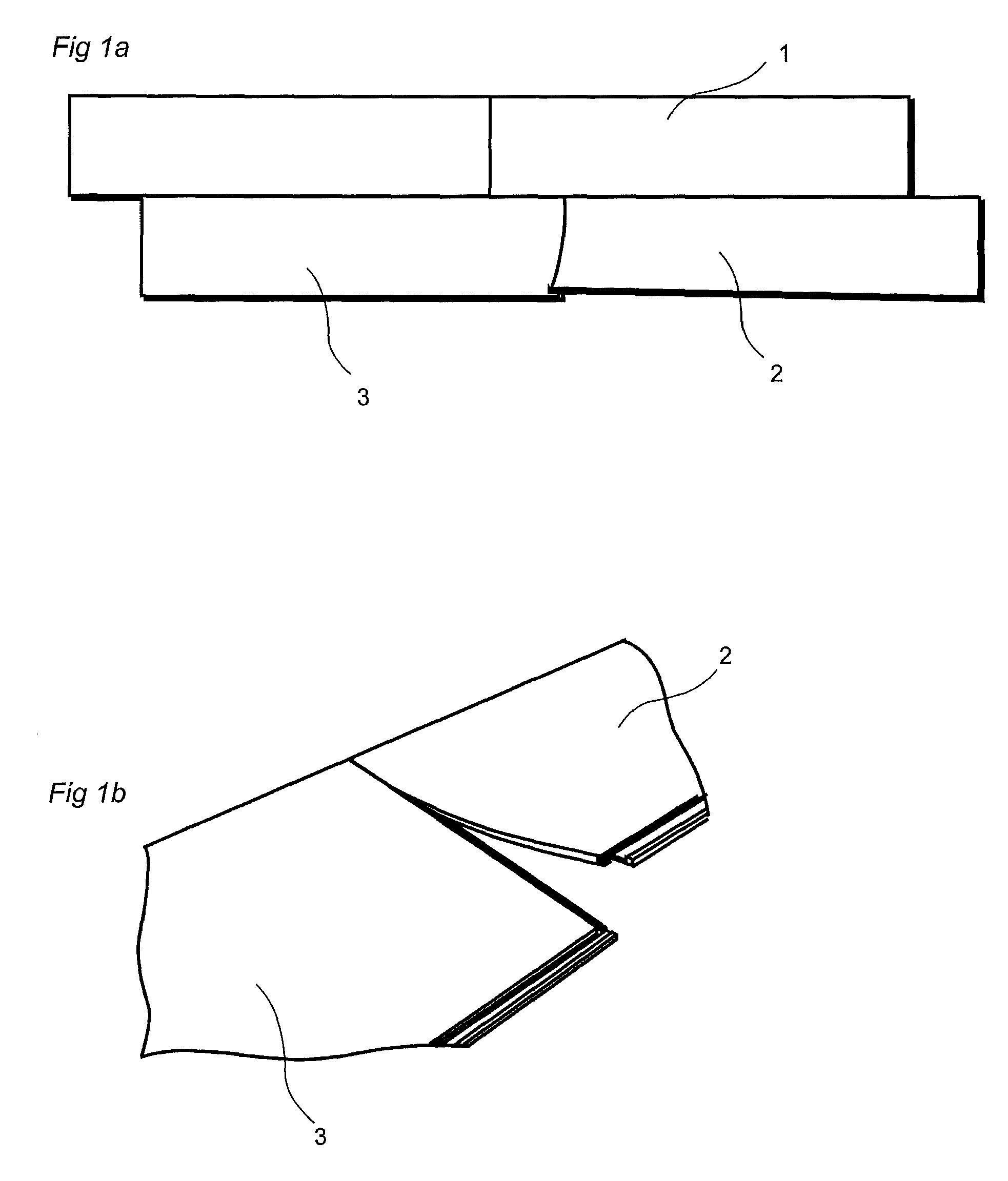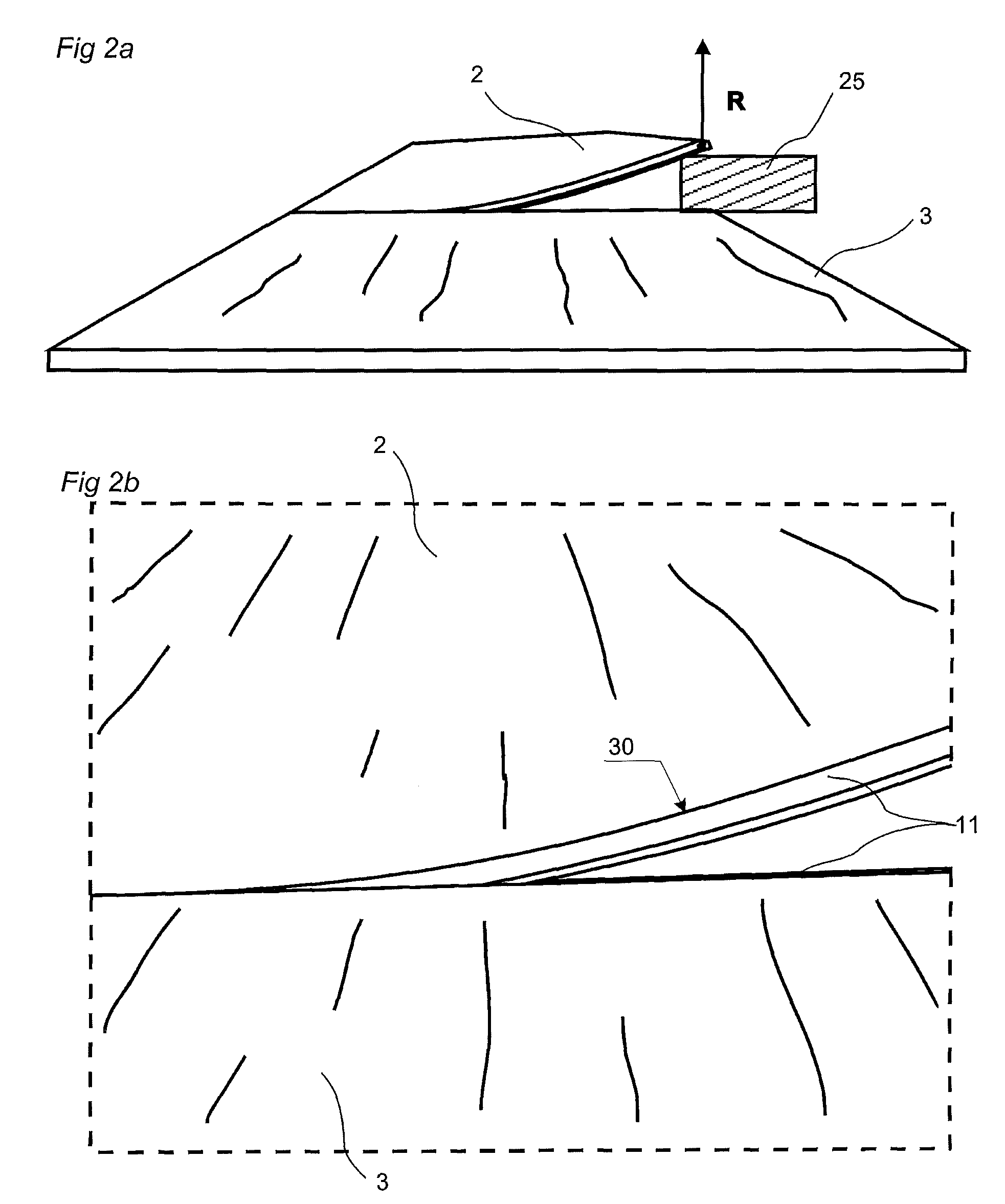Resilient floor
a resilient material and floor technology, applied in the field of floorboard assembly, can solve the problems of difficult use, difficult to use, and difficult to use angling, and achieve the effect of reducing the force needed for connection of the floorboards and increasing the friction of the resilient material
- Summary
- Abstract
- Description
- Claims
- Application Information
AI Technical Summary
Benefits of technology
Problems solved by technology
Method used
Image
Examples
Embodiment Construction
[0027]An embodiment of a method of assembling resilient floorboards (1, 2, 3) with a mechanical locking system 11 is shown in FIGS. 1a and 1b. An edge of a floorboard 2 is positioned juxtaposed another edge of another floorboard 3. The edge of the floorboard is bent (30) along the edge during the assembling and the connection of the floorboard edges to each other. In this embodiment the edge and said another edge are short edges and a long edge of the floorboard is connected to a long edge of a floorboard 1 in another row, by a mechanical angling locking system, simultaneous with the short edge connection, by an angular motion.
[0028]An embodiment of a mechanical angling locking system is shown in FIGS. 5a and 5b. Embodiments of the mechanical locking system 11 at the short edges is shown in FIGS. 6a to 9a. When assembling a complete floor the method shown in FIG. 1a is naturally applied and repeated for each resilient floorboard, which is provided with the locking system at each sho...
PUM
| Property | Measurement | Unit |
|---|---|---|
| angle | aaaaa | aaaaa |
| angle | aaaaa | aaaaa |
| angle | aaaaa | aaaaa |
Abstract
Description
Claims
Application Information
 Login to View More
Login to View More - R&D
- Intellectual Property
- Life Sciences
- Materials
- Tech Scout
- Unparalleled Data Quality
- Higher Quality Content
- 60% Fewer Hallucinations
Browse by: Latest US Patents, China's latest patents, Technical Efficacy Thesaurus, Application Domain, Technology Topic, Popular Technical Reports.
© 2025 PatSnap. All rights reserved.Legal|Privacy policy|Modern Slavery Act Transparency Statement|Sitemap|About US| Contact US: help@patsnap.com



